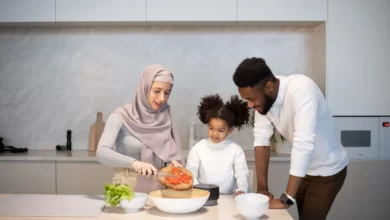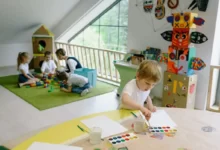Parenting is an incredible journey filled with joy, challenges, and growth for both parents and children. While it’s a rewarding experience, it can also be quite demanding. To navigate the complexities of parenting successfully, effective communication and collaboration between partners are essential. In this article, we’ll explore the importance of parenting as a team and offer practical tips for fostering better communication and collaboration within your family unit.
The Importance of Team Parenting
Parenting is not a one-person job. It requires a unified effort from both partners to create a nurturing and supportive environment for children to thrive. Here’s why parenting as a team is crucial:
1. Shared Responsibilities
When both parents actively participate in parenting, the workload is distributed more evenly. This not only reduces stress and fatigue but also allows children to benefit from different perspectives and parenting styles. Each partner brings their unique strengths to the table, creating a more balanced approach to parenting.
2. Role Modeling
Children learn by observing their parents. When parents work together harmoniously, they model effective communication, problem-solving, and collaboration skills. These are essential life skills that children will carry with them into adulthood.
3. Emotional Support
Parenting can be emotionally draining at times. Having a supportive partner who can empathize with your struggles and share the emotional load can make a significant difference in your well-being and your ability to provide a loving home for your children.
4. Stronger Family Bonds
Effective teamwork in parenting strengthens the bonds within the family. It sends a message to children that they are a part of a loving and cohesive unit, which can contribute to their sense of security and self-worth.
Now that we understand why parenting as a team is essential, let’s delve into some practical strategies for achieving effective communication and collaboration in your parenting journey.
Strategies for Effective Communication
Effective communication is the cornerstone of successful teamwork in parenting. It involves not only talking but also listening, understanding, and empathizing with your partner’s perspective. Here are some strategies to enhance your communication:
1. Open and Honest Conversations
Communication should be open, honest, and frequent. Create a safe space where both partners can express their thoughts, concerns, and feelings without judgment. Be willing to listen actively and empathize with each other’s experiences.
2. Set Clear Expectations
Discuss your roles and responsibilities as parents and set clear expectations. Who will handle specific tasks, such as feeding, bedtime routines, or school pickups? Having well-defined roles reduces misunderstandings and prevents conflicts.
3. Use “I” Statements
When discussing sensitive topics or conflicts, use “I” statements to express your feelings and needs. For example, say, “I feel overwhelmed when I’m the only one handling bedtime” instead of “You never help with bedtime.” This approach avoids blame and encourages constructive conversation.
4. Be Mindful of Nonverbal Communication
Nonverbal cues, such as body language and facial expressions, play a significant role in communication. Pay attention to these cues in yourself and your partner. They can reveal underlying emotions or concerns that may need to be addressed.
5. Practice Active Listening
Listening is as important as speaking in effective communication. When your partner is talking, give them your full attention, ask clarifying questions, and validate their feelings. This shows that you value their input and are willing to understand their perspective.
6. Take Breaks When Necessary
Sometimes, emotions can run high during discussions. If a conversation becomes too heated, it’s okay to take a break and revisit the issue later when both partners are calmer. This prevents arguments from escalating into hurtful exchanges.
7. Seek Professional Help
If communication challenges persist and are negatively impacting your relationship, consider seeking the assistance of a couples therapist or counselor. They can provide valuable guidance and tools for improving communication within your partnership.
Strategies for Collaborative Parenting
Collaboration involves working together to achieve common goals in parenting. It requires compromise, flexibility, and a shared commitment to the well-being of your children. Here are some strategies for fostering collaboration in your parenting journey:
1. Define Your Parenting Philosophy
Discuss and agree on your parenting philosophy and values. This includes your beliefs about discipline, education, and the overall upbringing of your children. Having a shared vision helps you make parenting decisions more cohesively.
2. Create a Family Calendar
Maintaining a family calendar that includes everyone’s schedules can help you coordinate your activities and responsibilities. This ensures that both parents are aware of each other’s commitments and can plan accordingly.
3. Divide and Conquer
Assign tasks and responsibilities based on each partner’s strengths and preferences. For example, if one parent enjoys cooking while the other prefers helping with homework, allocate these responsibilities accordingly. Remember that flexibility is key; roles can evolve as children grow and family dynamics change.
4. Support Each Other’s Interests
Recognize and support each other’s interests and hobbies outside of parenting. It’s essential to maintain individual identities and recharge your own batteries to be the best parents you can be.
5. Regular Family Meetings
Hold regular family meetings to discuss schedules, goals, and any concerns that may arise. This allows everyone in the family, including children, to have a voice and contribute to decision-making.
6. Stay Aligned on Discipline
Consistency in discipline is crucial for children’s understanding of boundaries and expectations. Both parents should be on the same page regarding discipline strategies and consequences to ensure a unified front.
7. Be Flexible
Parenting rarely goes according to plan. Be prepared to adapt and make adjustments as needed. Flexibility is a valuable trait in collaborative parenting.
Conclusion
Parenting as a team requires effective communication and collaboration between partners. By working together and employing the strategies discussed in this article, you can create a harmonious and loving environment for your children to grow and thrive. Remember that parenting is a journey filled with ups and downs, but with a strong and united team, you can overcome challenges and celebrate the joys along the way.









